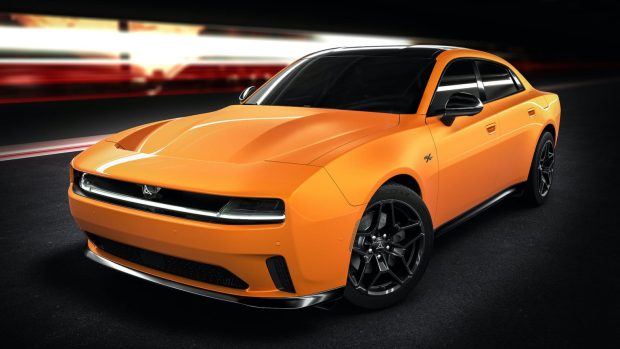
By Dave Ashton
Dodge is responding to strong consumer demand for internal combustion engine, ICE muscle cars by expediting the production timeline for its highly anticipated gas-powered Charger. Refering to MoparInsiders, this strategic pivot underlines Dodge’s commitment to catering to traditional muscle car enthusiasts while navigating the industry’s electric transformation.
However, the news also sends mixed messages about the whole ICE vs. electric debate. Only a few years ago, the Charger Daytona was announced as the first all-electric muscle car, marking the end of ICE muscle cars in general. Even those who vehemently opposed to electric vehicles had to concede defeat, thinking we would all be forced to buy electric vehicles shortly. However, the reality seems to be that ICE cars will not be going away anytime soon.
Why Dodge is Fast-Tracking the Gas-Powered Charger
In 2022, Dodge announced its intention to transition toward electrification with the unveiling of the Charger Daytona EV. However, feedback from loyal customers indicated a continued appetite for ICE models. In response, Dodge adjusted its strategy, ensuring that the electric Charger Daytona and the gas-powered Charger Sixpack meet market demand.
Originally slated for late 2025, the production of the ICE Charger has been accelerated by five months, with dealership availability now expected by early summer 2025.
According to Motor1, there are still loads of Chargers and Challengers available to buy on the Dodge website in all configurations.
Key Features of the Upcoming Gas-Powered Charger
Advanced Inline-Six Engine
The gas-powered Charger will be offered with inline-six-cylinder engines, providing a more efficient alternative to the classic V8. Dodge’s commitment to delivering high performance while maintaining fuel efficiency.
Dual Body Styles
The Charger Sixpack will be available in both two-door and four-door configurations, catering to a broader range of customer preferences. This flexibility ensures the model appeals to traditionalists and new buyers alike.
Production of the ICE Charger aligns with Dodge’s dual-strategy approach: maintaining the heritage of muscle cars while progressively embracing electrification.
Balancing EV Transition and ICE Legacy
As regulatory pressures intensify and more markets mandate a shift toward electric vehicles, Dodge faces the challenge of balancing its heritage-driven ICE lineup with the future-oriented EV models. The Charger Daytona EV remains central to Dodge’s long-term strategy.
Consumer Sentiment as a Driving Force
The expedited release of the gas-powered Charger signifies Dodge’s sensitivity to its core audience. Muscle car enthusiasts continue to value the sensory experience of combustion engines, and the brand’s decision to prioritize these preferences could bolster long-term loyalty.
Future Implications for the Muscle Car Market
Dodge’s dual approach may serve as a template for other automakers facing similar consumer and regulatory dynamics. The success of the gas-powered Charger and the reception of the Charger Daytona EV will likely shape future strategies across the industry.
Timeline of Dodge Charger Evolution
2022 : Dodge announces transition to electrification
2024 : First Charger Daytona EV production begins
2025 : Early summer release of gas-powered Charger Sixpack
2025 : Charger Sixpack ICE expanded to include four-door models
The whole car market seems to be a mixed bag of perspectives at present. Some makers are all in on electric, some are juggling with hybrids, while others are playing with alternative fules sources like hydrogen. In other words, the future is not fixed in terms of which technology will win out.
As anecdotal evidence, speaking with a local, grassroots car mechanic who serves the average car consumer, states most customers are not fully convinced electric vehicles are the best choice. The main points of contention are not enough charging points, range, what if you break down, I don’t own a driveway to charge the car, expensive, etc. On the other hand, speaking with a machinist from an F1 maker, their view was electric is the future. Two opposing viewpoints from two ends of the buying spectrum. Each has valid points to consider, but as it stands ICE cars have more more shelf life.
The post ICE Muscle Cars: Alive or Dead? appeared first on Muscle Car.

